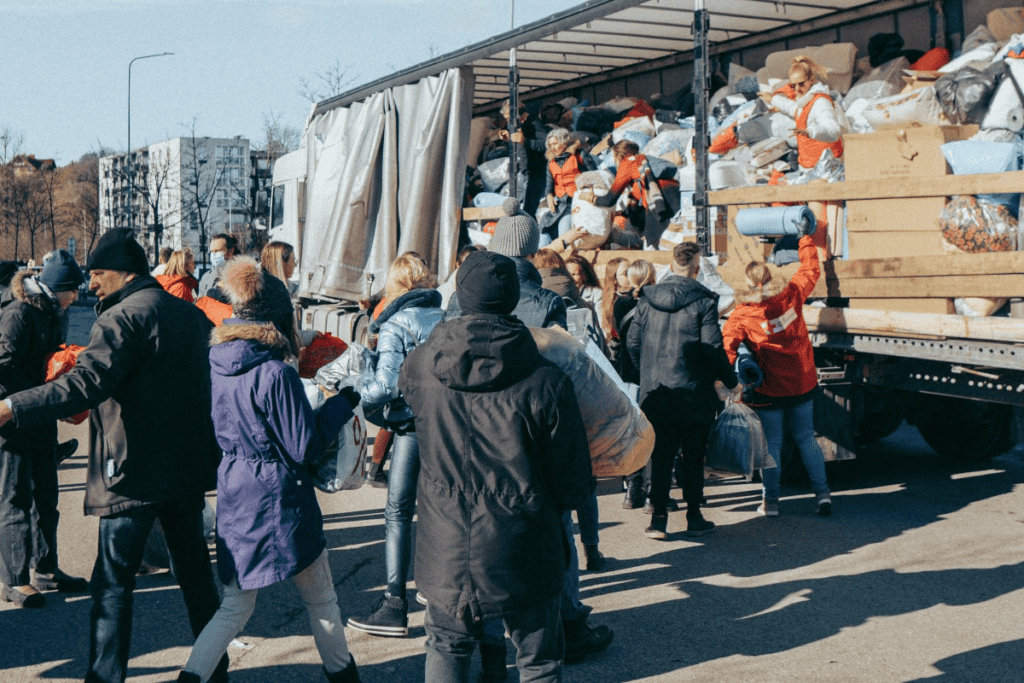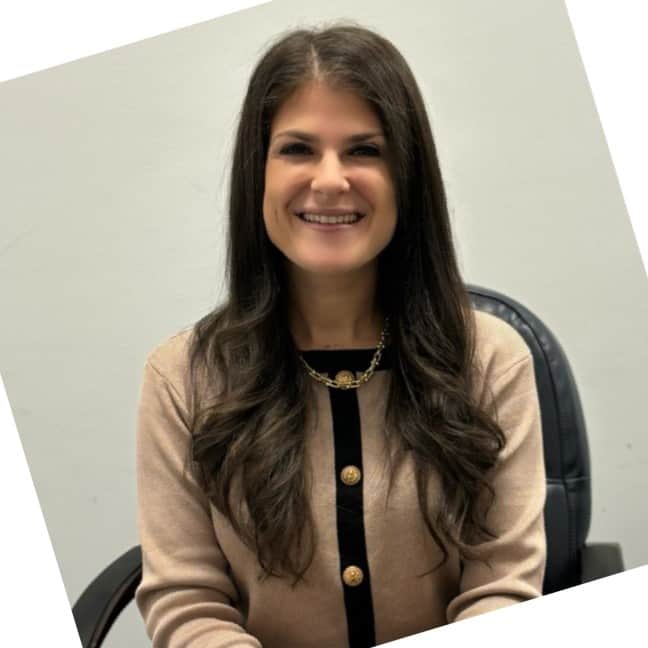Co-occurring disorders are when an individual has both mental disorders and struggles with substance abuse. Relapse prevention involves strategies and an integrated treatment approach for drug abuse or symptoms related to mental disorders.
During winter, risk factors can go up for substance use disorder. This can be related to winter depression and overlapping symptoms from co-occurring disorders, such as bipolar disorder. Throughout history, civilizations have recognized how early winter can cause an increased risk of seasonal affective disorder symptoms and, as it grows later in the season, major depression. Modern research sheds light on the connection between seasons, environmental factors, and other mental illnesses.
So why do winters pose specific challenges for those receiving substance abuse treatment? Factors like decreased motivation due to weather conditions, disruptions in daily routines caused by holidays or school breaks, and increased stressors related to financial pressures from holiday expenses can make it harder for individuals trying to stay on track with their recovery goals.
We’ve Helped Thousands of Individuals Overcome Drug and Alcohol Addiction
The Impact of Seasonal Affective Disorder (SAD) on Mental Illness
Seasonal Affective Disorder (SAD) is a type of depression that occurs in specific seasons, usually in late fall or winter as opposed to spring and summer months. Often called “winter blues,” symptoms may include sadness, fatigue, difficulty concentrating, changes in appetite or weight, and a loss of interest in once-enjoyable activities.
In winter, when daylight hours are shorter and sunlight exposure is reduced, individuals with seasonal affective disorder may be at risk for more intense symptoms. The lack of natural light can disrupt the body’s internal clock, also known as its circadian rhythm, and affect serotonin activity, leading to feelings of depression, low energy, and sometimes trouble sleeping.
It’s important to note that summer depression symptoms, while not as common, do occur and can be just as serious for those struggling with mental disorders and alcohol or substance abuse. Treatment options are available no matter what time of year it is.

Managing the Specific Season SAD Symptoms
Light therapy:
Sit near a specialized lightbox that emits bright artificial light similar to natural sunlight. This therapy helps regulate a person’s circadian rhythm and boost mood by adjusting melatonin levels and increasing serotonin levels.
Vitamin D supplementation:
Since sunlight exposure is limited in winter, ensure sufficient vitamin D intake through supplements or foods rich in this nutrient. Vitamin D plays a vital role in supporting overall mental well-being for the general population.
Regular exercise:
Engage in regular physical activity to release endorphins (“feel-good” hormones) that help combat SAD-related depression symptoms. Aim for at least 30 minutes of exercise per day if possible.
Establishing a routine:
Create a consistent daily schedule to provide structure during winter when motivation may be low due to when SAD occurs. Set times for waking up, eating meals, exercising, working/studying/engaging in hobbies or self-care activities to help maintain balance.
Incorporate relaxation techniques:
Practice deep breathing exercises or meditation to reduce stress levels that may worsen SAD symptoms. Treatment options can also include acupuncture, massage, and other recommended activities by a professional. For those in young adulthood, this can mean spending more time with family and friends.
Coping with Holiday Stress
The holiday season can be joyful and stressful, and the added pressure taking a toll. Expectations of gift-giving, family gatherings, and social obligations contribute to holiday stress. Recognizing these stressors and developing effective strategies for managing symptoms is essential, especially for those who have substance use disorders and co-occurring mental disorders.

Set Realistic Expectations
One strategy for coping with holiday stress is setting realistic expectations. Instead of striving for a perfect holiday experience, focus on what truly matters – spending quality time with loved ones and enjoying meaningful moments together. Embrace imperfections as part of the joyous chaos. This can really help people struggling with anxiety disorders since it removes the need for everything to be perfect.
Practice Self-Care
Another helpful strategy is practicing self-care during the holidays. Take care of yourself by prioritizing activities that bring you joy and relaxation. This could include taking a long bath, walking in nature, or practicing mindfulness exercises. Remember that self-care is not selfish; it allows you to recharge to show up fully present for others. Self-care can also address potential concerns with substance use disorder and relapse by providing a way to reduce anxiety and lower the risk of feeling overwhelmed.
Set a Gift Budget
Managing expectations around gift-giving can also alleviate financial stress during the holidays. Set a budget that works within your means, and don’t feel pressured to overspend on extravagant gifts. Consider alternative ways of showing appreciation, such as handwritten notes or homemade treats – these gestures often hold more meaning than material possessions.
Seek Support from Family and Professionals
Seeking support from loved ones or professionals who understand co-occurring disorders can be invaluable during heightened stress. Don’t hesitate to reach out if you’re feeling overwhelmed or struggling mentally – talking about your feelings with someone who understands can provide immense relief. Remembering this advice when navigating the holiday season will help maintain mental well-being throughout this potentially stressful period.
Taking Care of Yourself with Co-Occurring Disorders
Winter can be challenging for those with substance use disorder and a co-occurring disorder, such as personality disorders. This can include anxiety disorder, post-traumatic stress disorder, bipolar disorder, and depression. Building a routine that promotes taking care of yourself can help improve overall well-being and prevent substance use relapse.
Taking care of yourself physically, mentally, and emotionally is crucial during this season, when the lack of sunlight and colder temperatures can affect your mood.
Regular Exercise
Physical activity boosts mood and reduces symptoms of anxiety and depression in many patients. Find ways to stay active even in the winter months. You can walk, practice yoga at home, or join an indoor exercise class. Choose an activity you enjoy to make it easier to incorporate into your routine.

Balanced Diet
Proper nutrition is good across the board. During winter, when comfort foods may be tempting, make nutritious choices that provide energy and nourishment. Include fruits, vegetables, whole grains, lean proteins, and healthy fats.
Adequate Sleep
Good quality sleep is vital for physical health and other mental health disorders. Aim for seven to nine hours of sleep each night by establishing a consistent bedtime routine. Create a relaxing environment in your bedroom by keeping it dark, quiet, and calm.
Hobbies/Activities
Winter allows one to explore new hobbies or indulge in joyful activities. Whether painting, knitting by the fireplace, or cooking new recipes, engaging in activities you love uplifts your mood and promotes relaxation. It can also prevent the urge to partake in substance use.
Building a Support System
Having a solid support system becomes even more critical during the winter months. Building or strengthening connections with others who understand your struggles and dual diagnosis significantly helps prevent relapse with substance use.
Openly communicate with trusted friends and family members about your disorders, treatment, experiences, and any symptoms you may face. Sharing your feelings creates understanding and empathy, fostering a supportive environment. Consider joining local support groups or attending therapy sessions designed for patients experiencing similar alcohol and substance use disorders and/or personality disorders.
Take advantage of online platforms catering to individuals dealing with substance use disorders and mental illness symptoms. The National Institute on Drug Abuse is a good resource for learning more about mental health and correlated drug use. Join forums or social media groups to interact with like-minded individuals in a safe space. Look for workshops or events organizations hold focusing on mental health services, addiction treatment, and self-care during winter. These gatherings provide opportunities to meet new people who share similar interests while learning valuable coping strategies from experts in the field.
Engage in volunteer work to help others while meeting new people with shared passions or experiences. Volunteering provides a sense of purpose while building connections within your community. If you find yourself struggling despite having a support system in place, don’t hesitate to seek professional help from therapists or counselors specializing in relapse prevention strategies and co-occurring disorders.

Building a solid support system takes time and effort; it won’t happen overnight. Be patient as you cultivate meaningful relationships based on trust, empathy, and understanding. By actively seeking mental health services and connecting with others who can relate to your experiences, you’ll be better equipped to navigate the challenges of winter and maintain your mental well-being. An effective support system is especially crucial for substance use disorder treatment.
Recovery Starts at Our Drug and Alcohol Rehab by Requesting a Call
"*" indicates required fields
Call Now for Comprehensive Addiction Treatment at Right Path Recovery
Right Path Recovery offers various treatment programs to support and treat individuals with substance use disorders who also need help with co-occurring disorders, such as bipolar disorder. Our approach may include detoxification, residential inpatient treatment, and PHP (Partial Hospitalization Program), depending on the care that each person needs.
According to the Substance Abuse and Mental Health Services Administration (SAMHSA), one crucial aspect of the recovery process is relapse prevention. At Right Path Recovery, we understand that overcoming addiction is not just about detox or completing treatment programs; it’s about addressing mental illness and learning strategies to maintain sobriety long-term. Our relapse prevention treatment equips individuals with the tools and skills to identify triggers, manage cravings, and effectively cope with stressors that contribute to substance misuse.

Winter can be particularly challenging for those dealing with mental illness. Combining shorter days, colder weather, and less sunlight can impact mood and well-being. That’s why we recognize the importance of addressing co-occurring disorders at Right Path Recovery. Our team provides individualized treatment tailored towards managing seasonal affective disorder (SAD) and navigating other mental health conditions during this time of year. Contact us today for more information on addiction treatment options for patients struggling with abusing drugs or alcohol, and let us help you prioritize your emotional well-being during this challenging season.

Insurance Can Cover up to 100% of The Costs of Addiction Treatment and Mental Health Care
Did you know that insurance can cover up to 100% of the costs of addiction treatment and mental health care? Our addiction treatment center accepts most insurance plans. For a free insurance benefits check complete our confidential insurance verification form by clicking the link below.













